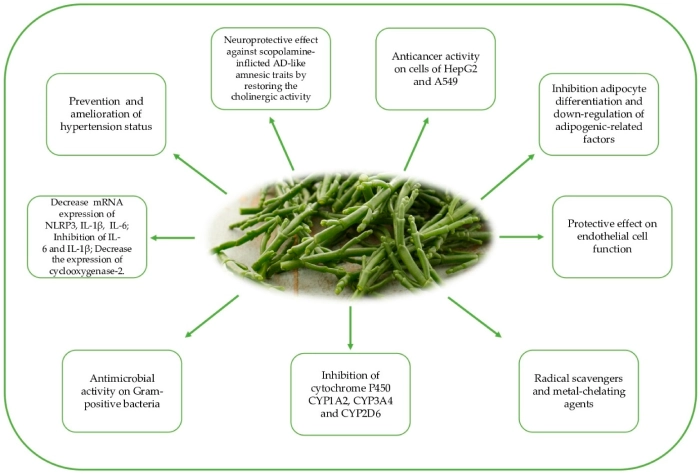Analyzing the Therapeutic Roles of Key Medicinal Plants from the UAE
The United Arab Emirates (UAE) is home to a rich array of indigenous medicinal plants, which have been used for centuries in traditional healthcare practices. Recent studies have systematically reviewed the pharmacological and nutritional benefits of several key plants, such as Lawsonia inermis (henna), Nigella sativa (black seed), Ziziphus spina-christi, Allium cepa (onion), Allium sativum (garlic), Cymbopogon schoenanthus (lemongrass), Matricaria aurea (chamomile), Phoenix dactylifera (dates), Portulaca oleracea (purslane), Reichardia tingitana, Salvadora persica (miswak), Solanum lycopersicum (tomato), Trigonella foenum-graecum (fenugreek), Withania somnifera (ashwagandha), and Ziziphus lotus.
Comprehensive literature reviews sourced from PubMed, Scopus, and Web of Science have revealed significant findings regarding the pharmacological potential of these plants. The bioactive compounds they contain, such as flavonoids, polyphenols, and antioxidants, have been found to be effective in treating various diseases. Many of these compounds are particularly known for their potential in managing gastrointestinal disorders and combating antimicrobial resistance.
Beyond their medicinal properties, the nutritional value of these plants plays a pivotal role in disease prevention and health promotion. Several of them are rich in essential vitamins, minerals, and other nutrients that contribute to overall well-being. The therapeutic potential of these plants is not limited to the UAE alone, as they have been used for centuries in other regions of Asia, Africa, and Europe.
The broader implications of this research suggest that these plants could provide natural, sustainable alternatives to synthetic pharmaceuticals. The integration of these plants into global healthcare systems may reduce reliance on chemical-based treatments, aligning with growing trends towards more holistic and sustainable health practices. By bridging traditional knowledge with modern scientific discoveries, these medicinal plants may offer innovative solutions to some of the world’s most pressing health challenges.
Commentary by SuppBase columnist Alice Winters

The ongoing interest in natural, plant-based remedies has been steadily growing, and the study of medicinal plants from regions like the UAE highlights their potential to meet global health needs. What makes this research particularly interesting is its combination of traditional knowledge and modern science. The plants reviewed have long been used in local folk medicine, and now, backed by scientific data, their potential in addressing common health issues like antimicrobial resistance and gastrointestinal diseases is becoming clearer.
While the findings from this study are promising, one must consider the challenges of incorporating these plants into mainstream healthcare systems. First, the standardization of dosages and formulations of these plant-based remedies remains a hurdle. Unlike synthetic pharmaceuticals, plant compounds can vary in potency based on environmental factors, preparation methods, and extraction processes. As such, further research is needed to ensure consistency and efficacy in using these plants as standardized treatments.
Another challenge is the regulatory environment. Many of the plants identified in the study, such as Nigella sativa and Withania somnifera, are already popular in dietary supplements, yet their safety and efficacy in long-term use have not been universally established. A deeper understanding of potential side effects, contraindications, and interactions with conventional drugs is crucial before recommending widespread use.
The environmental impact of cultivating these plants should also be considered. While these plants are often sustainable in traditional settings, modern agricultural practices may pose risks to their long-term viability, especially if demand increases dramatically. Sustainable farming practices, responsible sourcing, and ethical trade will be necessary to ensure that these plants continue to be a viable option for healthcare systems worldwide.
In conclusion, this study serves as a valuable resource for both healthcare professionals and consumers. It offers a compelling case for integrating medicinal plants into global health strategies, but also calls for careful evaluation to ensure their safe and effective use. As the trend toward natural remedies continues, the conversation must evolve to address the complexities of plant-based healthcare while remaining mindful of sustainability, safety, and scientific rigor.



